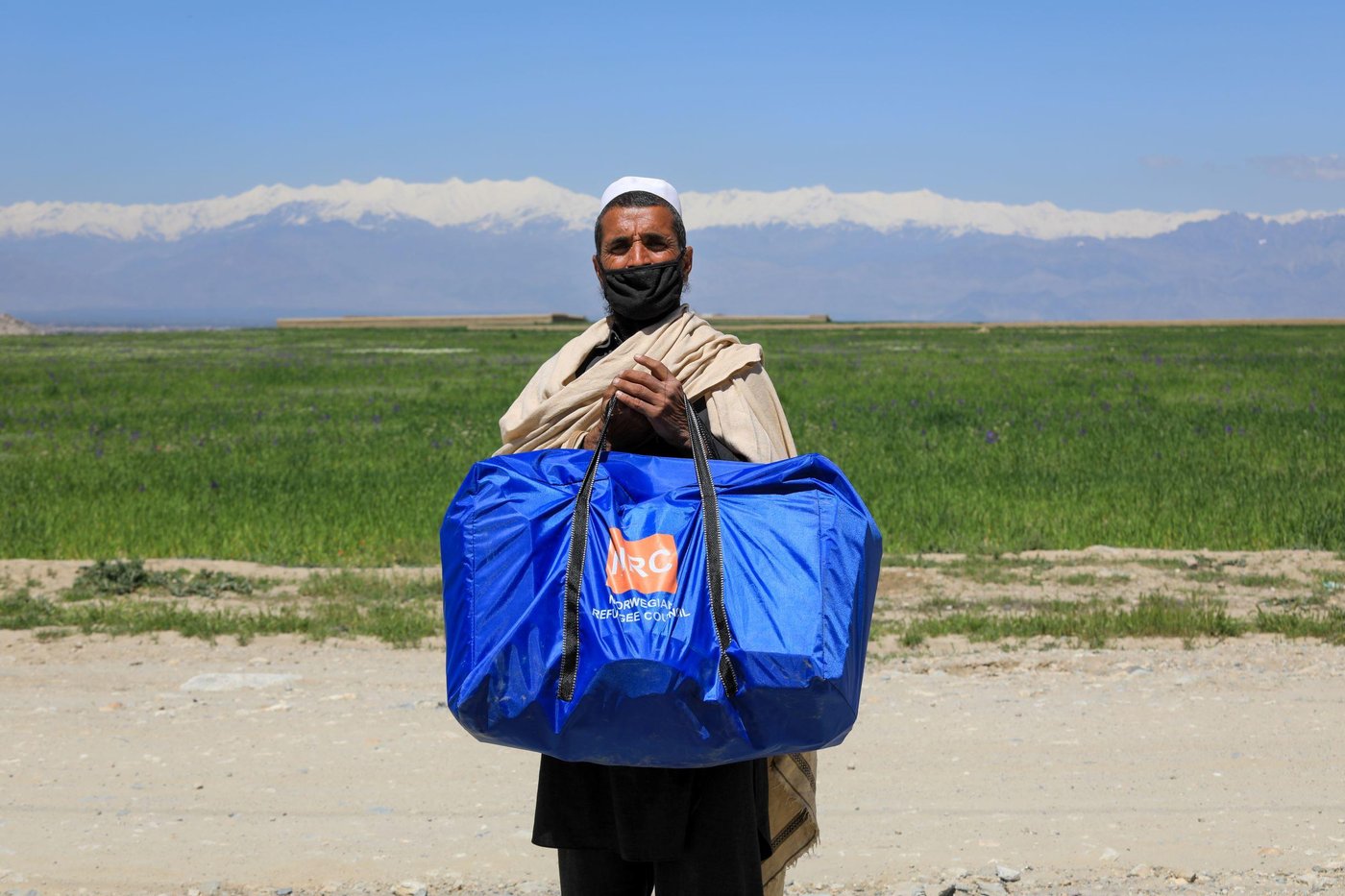The most important thing right now is to increase people’s knowledge about the virus and how they can protect themselves and prevent the virus spreading. We are also stepping up our efforts to safeguard water supplies and improve sanitary conditions, in addition to distributing soap and hygiene products.
This is a snapshot of our Covid-19 response:

#1: Securing access to clean water
In a settlement outside the provincial capital of Herat in Afghanistan, we are helping to ensure that more than 10,000 people who have fled drought and hostilities have access to clean water.
Good hygiene practices, such as handwashing, are among the most effective ways to prevent viruses from spreading. This is why NRC is working hard to secure the water supply and ensure that people have the opportunity to practise good hand hygiene in refugee camps and schools.

#2: Distributing soap
Iran hosts thousands of Afghan refugees and is also the Middle Eastern country most severely affected by coronavirus. So far, we have distributed soap and hygiene items to more than 6,000 families.
Many refugees and internally displaced people are living in poverty and struggle to meet their most basic needs. In some places, the crisis has also led to a sharp rise in prices. Consequently, many of the most vulnerable families cannot afford to buy soap or cleaning agents.

#3: Providing information
In Lebanon, NRC is hanging posters in Syrian refugee settlements in the Bekaa Valley.
We are working with the national health authorities in several countries to share information about coronavirus. In some countries, NRC is going door-to-door to provide information and share knowledge on how people can protect themselves and prevent the spread of the virus.

#4: Taking care of the children
In Zaatari refugee camp in Jordan, we support the homeschooling efforts of teachers, parents and children, including through the use of a special app. We have also created an emergency hotline where children and parents can receive psychosocial support.
For displaced children, school is a place that provides protection, a place where they can process trauma and experience a touch of normality. Their homelife is often characterised by close living quarters and parents who lack the ability to meet children’s needs. As the pandemic leads to more closed schools, children are hit particularly hard.

#5: Providing cash and food aid
NRC’s staff are going door-to-door in the city of Cali, Colombia, to help provide food and other essentials for the most vulnerable families, including refugees from neighbouring Venezuela.
Many refugees and internally displaced people have limited opportunities for paid work, and the coronavirus crisis has made the situation even more difficult. NRC is working to ensure that money and food aid reach the most vulnerable.

#6: Renovating health centres
In Aleppo, Syria, we are currently renovating a health centre to accommodate patients infected with coronavirus.
Millions of refugees and internally displaced people live in war-torn countries with limited access to medicine and health services. Typically, large parts of the infrastructure are in ruins and many hospitals and health centres have been destroyed during hostilities.

#7: Preventing the spread of the virus in refugee camps
In cooperation with the UN Refugee Agency (UNHCR), NRC is building quarantine housing for Syrian refugees in Azraq camp in Jordan.
Family members who have been outside the camp will be able to stay in these quarantine houses for 14 days to reduce the risk of infecting others in the camp.
There is a high risk of infection spreading in refugee camps, where people live close together with no way to practise social distancing.

#8: Continuing to deliver life-saving help
NRC is distributing food vouchers to internally displaced families in Yemen’s capital Sana’a. We are continuing our efforts, but we must take certain precautions, such as social distancing.
Humanitarian needs are not lessened by the coronavirus crisis. Thanks to our supporters and 15,000 dedicated employees in 30 countries, we are able to continue to provide life-saving help: creating and operating refugee camps, ensuring people have access to water, improving sanitation, and providing shelter, education and food security, in addition to information, legal advice and free legal aid.
Everyday life has become more demanding both for us and for those we help. We are now performing some of our work over the phone, on the Internet and through digital platforms.

#9: Providing experts
NORCAP, NRC’s global provider of expertise, is continuing to provide expertise to the humanitarian, development and peacebuilding sectors during the coronavirus crisis. Ninety per cent of all currently deployed experts are involved in our Covid-19 response.
Our education experts are setting up remote learning programmes for children who are unable to go to school. In Mali, for example, they have helped 10,000 displaced children receive lessons through the use of solar-powered radios, safeguarding children’s right to education even in low-tech resource areas.
Global statistics indicate that domestic violence has surged worldwide since the start of the coronavirus lockdown. To address this, NORCAP experts, together with UN Women and UNFPA, have ensured that plans to combat gender-based violence are included in the response plan for refugees and migrants in Colombia and in the global Covid-19 humanitarian response plan. This is important for reducing stigma and making sure survivors have access to life-saving health services.


